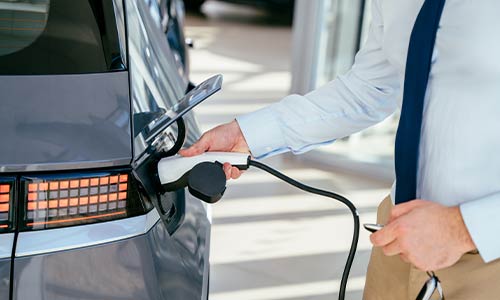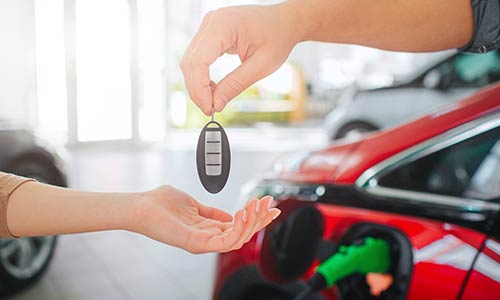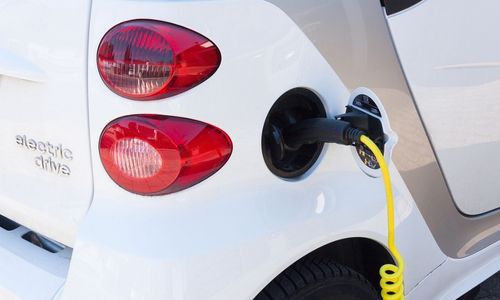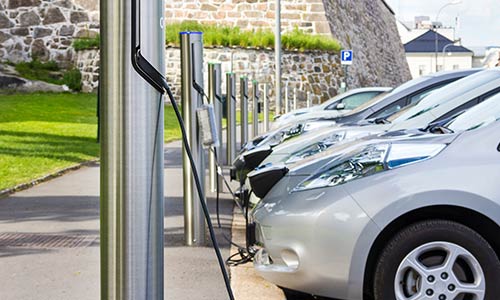
Electric car conversion: How to convert a car to electric
Last updated June 26, 2023
Many combustion engine car owners are struggling to find cheap petrol and diesel prices - and face daily charges when they travel in Ultra-low Emission Zones (ULEZ) and the Congestion Charge Zone.
With the 2030 petrol and diesel ban (which will prohibit the sale of all new combustion engine vehicles) edging closer, many drivers are now seriously thinking about making the switch to an electric car.
However, the high upfront cost remains a barrier to buying an electric car for many drivers. (Even the cheapest new electric models cost more than £20,000.)
So, what are your options if you want to make the leap to electric without breaking the bank? In this guide, we will explain how you can convert your existing petrol or diesel car into a fully electric vehicle - and enjoy all the benefits of an EV without buying a brand-new car.
Just think, by converting your old combustion engine car to an electric vehicle, you could make big savings on running costs, whilst also doing your part to save the planet!
Value your car in under 30 seconds
Can you convert all cars to electric?
Almost any car can be converted to run on electric power, making this a viable option for anyone looking to switch from a traditionally fuelled car to an EV.
How to convert a car to electric
In most cases, a combustion-engine car can be converted to electric by removing the engine, exhaust, gearbox and other components - and replacing them with electric motors and a battery.
You can purchase an electric car conversion kit which will contain everything you need. (Alternatively, you can simply use components from an old electric car.)
Although the DIY approach could potentially save you some money, we wouldn’t recommend attempting an electric car conversion yourself unless you happen to have the relevant tools, knowledge and expertise.
The process of electric car conversion is fairly complicated (not to mention time consuming). Therefore, hiring a reputable mechanic can give you the peace of mind that the work will be carried out safely and correctly.
What you’ll need
-
Electric motors and a battery (as well as any specific components required for your car).
Converting your car to electric (step-by-step)
-
Remove anything related to the internal combustion system (e.g. the engine, radiator, exhaust and fuel tank).
-
Measure the space left inside to discover what parts you will need and source them.
-
Fit the electric parts to the car.
-
Wire it up and ensure that the high voltage wiring is orange.
-
Set up the controls.
-
Test your newly-electrified car to ensure it meets compliance standards.
Electric car conversion law explained
Converting a car to run on electric power is perfectly legal. However, your vehicle must comply with the UK’s Road Vehicles Regulations legislation - and you will need to re-register it with the DVLA.
You can do this via the vehicle registration pages on the gov.uk website. (Depending on the amount of work you have carried out, your converted electric car might be classified as a ‘radically altered’ or ‘rebuilt’ vehicle.)
To register your EV conversion with the DVLA, you’ll need to send them the following documentation:
- A completed V55/4 or V55/5 form.
- Proof of identity (such as a copy of your driving licence).
- Payment for vehicle tax should be included, together with a new registration fee of £55 and a current MOT certificate if the vehicle is more than three years old. (You can print out your MOT certificate at home for free if you don’t have a copy to hand.)
- A V627/1 form with evidence of approval (if applicable).
- The original vehicle registration also should be sent with receipts for parts and photographs of the car.
If your application is approved, you will receive an updated V5C logbook from the DVLA.
Your newly electrified car will still need an annual MOT test (if it is over three years old). The cost will remain the same – the only difference is the exhaust emissions part of the test will no longer be necessary.
(Use our free MOT check tool to find out when your next MOT is due. Read our comprehensive MOT checklist to ensure your car is ready for its upcoming test.)
You'll also need to inform your car insurance provider. Converting your car to electric may increase the cost of your insurance premium.
How much does it cost to convert a car to electric?
If you purchase a DIY conversion kit and hire a qualified mechanic, you can expect to spend around £15,000 on your conversion (although the cost may differ depending on the type of vehicle and kit you are using).
Here are some of the costs you’ll have to factor in:
- Many different companies offer universal EV conversion kits and packages for classic cars, as well as more modern vehicles.
- DIY conversion kit costs can vary from £5,000 to as much as £8,000.
- You’ll need to pay for all the parts required in addition to labour costs.
- Labour costs will vary depending on the complexity of the electric conversion.
- The cost of the conversion itself will depend on the age, make and model of your car.
- A conversion by a specialist company may cost £15,000 or more. However, this will include all the hardware and software needed for the conversion. When implemented correctly, this should also increase your car’s resale value.
- As we’ve mentioned above, you’ll also have to pay a new registration fee.
Is it worth converting your car to an electric vehicle?
Whilst there is a considerable upfront cost involved in converting your car to an electric vehicle, this is still likely to be lower than buying a new EV.
Converting your car may be particularly worthwhile if you are attached to your current vehicle, but want to reduce your carbon footprint, as this option gives you the best of both worlds.
According to a report by a leading UK energy saving website, in January 2023, the average cost of running a fully electric car was just 11p per mile - whereas the average running cost for a petrol vehicle was almost double that figure at 21p per mile.
What are the best cars to convert to electric?
Popular car models that are ideal for electric conversion include:
- VW Beetle.
- Jaguar E-Type.
- Fiat 500.
- Porsche 911.
- Mini Cooper.
Converting vs buying an EV
Whether you choose to buy an electric car or convert your existing one, you will see a reduction in running costs and your carbon footprint.
The choice between converting and buying an EV lies entirely with you - and the best option will depend on your budget and preferences.
Today’s best electric cars deliver great performance, range and reliability, although they remain a little out of a budget buyer’s price range. If you can’t bear to part with your current motor, converting it to an EV could potentially save you money in the longer term.
Want to know the value of your newly electrified car? Try our free electric car valuation tool.





